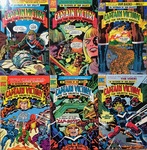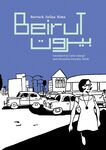
retail price - $19.95
copacetic price $17.95
Gemma Bovery
published by Pantheon
Long known to readers of the British newspapers, The Guardian (which, by the way, awarded their 2001 literary prize to Jimmy Corrigan, the Smartest Kid on Earth, by Chris Ware) and The Independent, which serialized this work, Posy Simmonds brings a sophisticated literary sensibility to the world of Comics. In Gemma Bovery, she reimagines Flaubert's Madame Bovary as it might be, should it unfold at the close of the twentieth century. It's also a piece of meta-fiction as well, with its own unique twist on the literary fashion set in motion by A.S. Byatt's Possession of having twentieth century lives intertwine with those of eighteenth century literary characters. In Gemma Bovery, Ms. Simmonds shows us how life can seem to be imitating art in the mind of one obsessed with a particular work -- in this case Madame Bovary -- and that, perhaps, it is possible that such an obesssion can lead, in actuality, to life being molded after art; and, then again, perhaps not. She's definitely studied the late work of comics master Will Eisner's later work, and this study has reaped substantial dividends for the reader. Simmonds' has concocted a unique blend of text, illustration and comics that manages to retain the best of both worlds and communicates a wealth of emotional terrain. Students of comics will be intrigued to discover which aspects of the storytelling process are parcelled out to the visuals and which to the text. This piece is quite worth a look, and we encourage you to seek it out. Gemma Bovery stands right at the intersection of the broad boulevard of purely prose literature and the freshly laid tar on the side street of comics lit and stands to appeal to adventurous readers going both ways.
This item belongs to the categories:
Graphic Novel, Gift Catalogue
You may also enjoy these related titles:
Search Copacetic
Just in:














